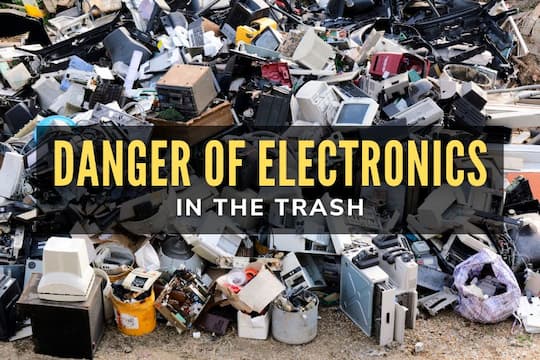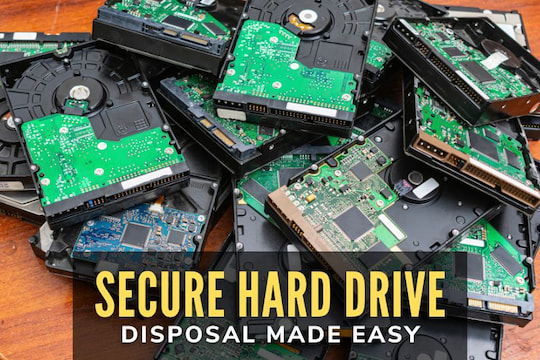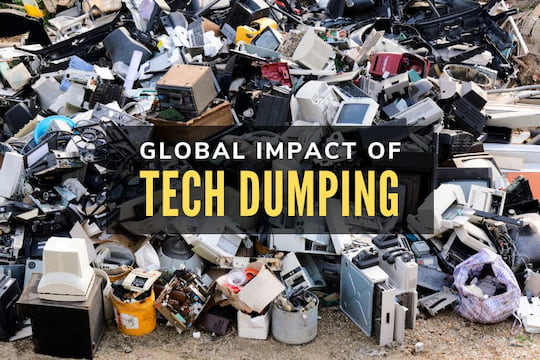In an age dominated by digital data, secure data destruction is not just a procedural task—it's a crucial safeguard for businesses and government entities. The importance of secure data destruction cannot be overstated, as it protects sensitive information from unauthorized access and mitigates the risk of data breaches. In the bustling economic hubs of Los Angeles and Orange County, where the exchange of digital information is continuous, understanding how to destroy data properly is vital for maintaining security and compliance.
What Is Data Destruction?

Data destruction is the process of erasing data from storage devices so that it cannot be retrieved or reconstructed. This process is vital for ensuring that sensitive information doesn't fall into the wrong hands. Think of it as shredding a paper document but in a digital format.
Why Is It Important?
Data breaches can have catastrophic consequences, from financial losses to reputational damage. Secure data destruction helps mitigate these risks by permanently erasing data. When old files, documents, or entire drives are no longer needed, they should be destroyed in a way that makes data recovery impossible.
Legal Requirements
Both federal and state laws mandate strict guidelines for data management and destruction. Non-compliance can result in steep penalties. For instance, the California Consumer Privacy Act (CCPA) imposes stringent requirements on businesses to protect consumer data.
Benefits of Secure Data Destruction
Prevent Data Breaches
One primary reason for secure data destruction is to prevent data breaches. When data is properly destroyed, unauthorized parties can't access it. This simple practice can save businesses from potential breaches that could be costly and damaging.
Protecting Sensitive Information
Businesses store many sensitive information, from employee records to financial data. Securely destroying this data ensures it does not get into the wrong hands, protecting the company and its clients.
Safeguarding Reputation
A data breach can severely tarnish a company's reputation. By prioritizing data destruction, businesses show their clients they take data security seriously, thus building trust and credibility.
Cost-Saving Measure
While investing in secure data destruction services is an added expense, it is a cost-saving measure in the long run. The costs associated with data breaches—legal fees, loss of business, and damage control—far outweigh the costs of secure data destruction.
Methods of Secure Data Destruction
Digital Shredding
Digital shredding involves overwriting data multiple times to ensure it cannot be recovered. This method is effective for files and documents stored electronically.
Degaussing
Degaussing uses a high-powered magnet to disrupt the magnetic fields on a drive, making data recovery impossible. It is particularly effective for magnetic storage devices such as hard drives.
Physical Destruction

Sometimes, physically destroying the storage device is the most secure option. This could involve shredding the drive into tiny pieces or incinerating it to prevent data from being retrieved.
Certified Data Destruction Services
Hiring certified data destruction services ensures data is destroyed following industry standards and legal requirements. These services provide a certificate of destruction, giving businesses peace of mind that their data has been securely erased.
Best Practices for Secure Data Destruction
Regular Audits
Conduct regular audits of all data storage devices to ensure no sensitive information is overlooked. Identify which devices need data destruction and schedule regular destruction cycles.
Employee Training
Educate employees about the importance of secure data destruction. Ensure they understand the protocols for disposing of sensitive information and the risks associated with improper data disposal.
Use Professional Services
While some businesses might be tempted to handle data destruction in-house, it's best to use professional services. These experts have the tools and knowledge to ensure data is securely and effectively destroyed.
Documentation
Keep thorough records of all data destruction activities. Documentation should include the data types destroyed, the methods used, and the personnel involved. This is crucial for legal compliance and internal audits.
Stay Updated
Data destruction techniques and legal requirements are continually evolving. Stay informed about the latest developments to ensure your data destruction practices remain effective and compliant.
Protecting Your Business Data
Secure data destruction is not just about protecting information—it's about safeguarding your business, clients, and reputation. By understanding the importance of secure data destruction and implementing best practices, businesses and government agencies in Los Angeles and Orange County can reduce the risk of data breaches and ensure compliance with legal standards. Secure your data, secure your future.




















